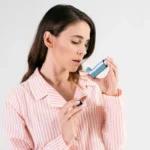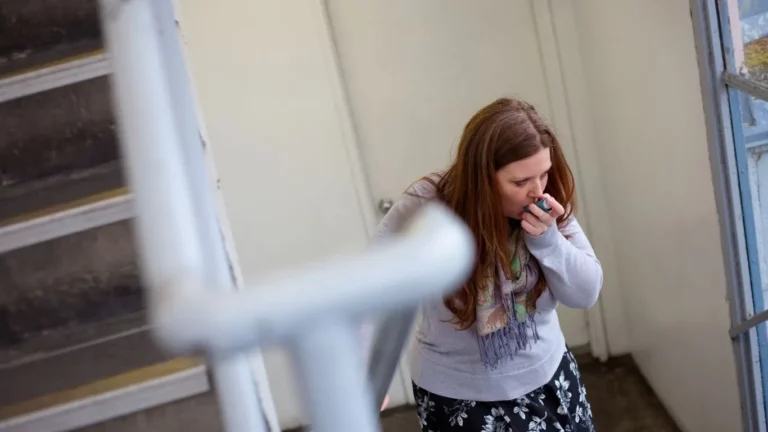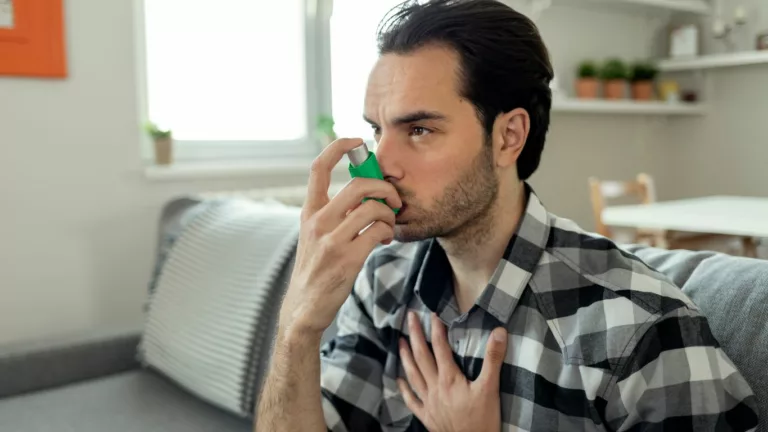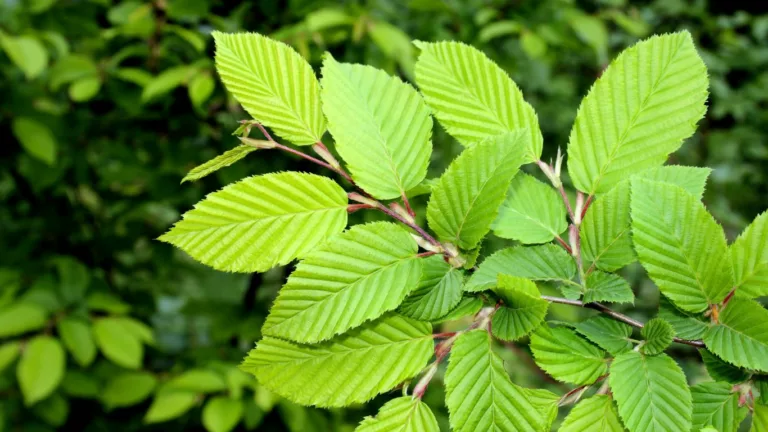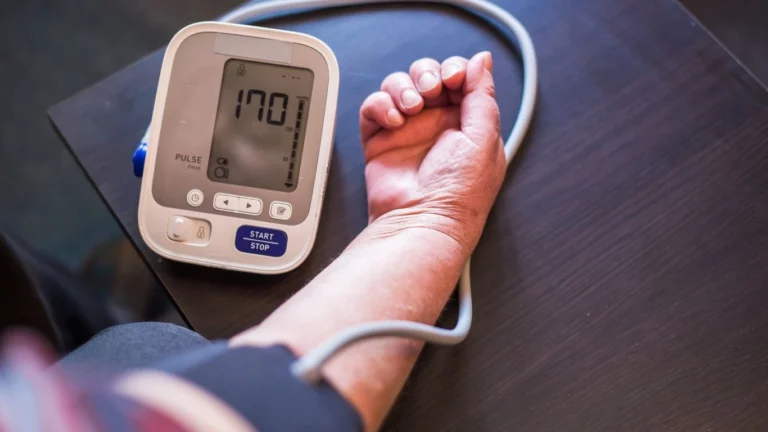Best Air Purifiers for Asthma: A Comprehensive Guide
Looking for ways to reduce asthma triggers at home? One of the most effective solutions is using an air purifier. In this guide, we’ll walk you through the best air purifiers that can help improve indoor air quality and make breathing easier for people with asthma.
 When you have asthma, dealing with triggers like dust, pollen, pet dander, and mold is a constant challenge. One of the most powerful ways to reduce these irritants in your home is by using a good air purifier. But not all air purifiers are created equal, especially when it comes to asthma relief. This guide will help you pick the best air purifiers for asthma so you can breathe easier and enjoy cleaner air.
When you have asthma, dealing with triggers like dust, pollen, pet dander, and mold is a constant challenge. One of the most powerful ways to reduce these irritants in your home is by using a good air purifier. But not all air purifiers are created equal, especially when it comes to asthma relief. This guide will help you pick the best air purifiers for asthma so you can breathe easier and enjoy cleaner air.
What to Look for in an Air Purifier for Asthma
Before diving into our recommendations, it’s important to know what features make an air purifier ideal for asthma sufferers. Here’s what you need to keep in mind:
1. HEPA Filters
High-Efficiency Particulate Air (HEPA) filters are the gold standard when it comes to trapping tiny particles in the air, like pollen, dust mites, and pet dander. If you’re looking for an air purifier for asthma, a HEPA filter is a must. These filters can capture particles as small as 0.3 microns, which is essential for preventing asthma flare-ups.
2. Carbon Filters
Carbon filters help remove odors and gases like volatile organic compounds (VOCs), which can trigger asthma symptoms. These filters are particularly useful if you’re dealing with things like smoke, cooking odors, or chemicals in the air.
3. Coverage Area
Make sure the air purifier is the right size for the room where you plan to use it. If you want to purify the air in a large living room, you’ll need a more powerful unit. Look at the square footage each air purifier is rated for to make sure it’s the right fit.
4. Quiet Operation
Asthma sufferers often have sensitivity to noise, so look for air purifiers that run quietly, especially if you plan to use them in a bedroom while you sleep.
Top Air Purifiers for Asthma
Now that you know what to look for, let’s dive into some of the best air purifiers for asthma.
1. Coway AP-1512HH Mighty Air Purifier
This air purifier is often considered one of the best for asthma and allergy sufferers due to its powerful HEPA filter. It also includes a pre-filter, carbon filter, and a Vital Ionizer, which helps to further reduce airborne particles. The Coway Mighty is known for being effective, quiet, and affordable. It’s ideal for medium-sized rooms and has an auto mode that adjusts its operation based on the air quality in the room.
2. Honeywell HPA300 True HEPA Air Purifier
If you’re looking for a purifier that can handle a larger room, the Honeywell HPA300 is a great choice. It boasts a true HEPA filter and a carbon pre-filter that traps a wide range of allergens, including pet dander, pollen, and dust. It also has three cleaning levels to choose from, making it customizable to your needs. 
3. Levoit Core 300 Air Purifier
For smaller rooms, the Levoit Core 300 is a solid option. It comes with a HEPA filter and an optional carbon filter for added protection against odors. It’s quiet, energy-efficient, and highly rated for asthma relief. Plus, it’s compact and portable, making it perfect for bedrooms or offices.
4. Winix 5500-2 Air Cleaner
The Winix 5500-2 features a true HEPA filter and a washable carbon filter, plus a PlasmaWave technology that helps neutralize airborne pollutants without creating ozone. This model is particularly effective for those with asthma, as it’s built to trap particles like dust, pet dander, and pollen. It also has a smart sensor that adjusts the air purifier’s speed based on the room’s air quality.
5. Blueair Blue Pure 211+ Air Purifier
Blueair air purifiers are known for their high performance and sleek design. The Blue Pure 211+ is no exception, featuring both a HEPA and carbon filter to tackle allergens and odors. It’s effective for larger rooms and operates quietly, making it an excellent choice for those with asthma who need clean air without the noise.
How Air Purifiers Help Asthma Sufferers
Air purifiers work by filtering out the harmful particles in the air that can trigger asthma symptoms. These particles include:
- Dust
- Pollen
- Pet dander
- Mold spores
- Smoke
- Volatile organic compounds (VOCs)
By removing these triggers, air purifiers help create a cleaner, healthier indoor environment that reduces the likelihood of asthma flare-ups. Additionally, air purifiers with carbon filters can help remove irritating smells that might otherwise worsen symptoms.
Tips for Using an Air Purifier for Asthma
To get the most benefit from your air purifier, follow these tips:
1. Keep It Running
For the best results, keep your air purifier running continuously, especially during the night when many asthma sufferers experience symptoms. This ensures that the air remains clean and free of triggers at all times. 
2. Change Filters Regularly
To maintain peak performance, make sure to change the filters on time. This is typically every 6-12 months, but check the manufacturer’s recommendations for your specific model.
3. Use It in the Right Rooms
Place your air purifier in the rooms where you spend the most time, such as your bedroom or living room. If you’re using it at night, keep it by your bed to ensure the air is clean as you sleep.
Conclusion
Finding the right air purifier for asthma can significantly improve your indoor air quality and reduce asthma symptoms. Models like the Coway Mighty, Honeywell HPA300, and Levoit Core 300 are excellent choices for their powerful filtration, quiet operation, and effectiveness at removing allergens. With the right air purifier, you’ll be able to breathe easier and enjoy a healthier living environment. 
Appendices
FAQs
Here are some frequently asked questions about air purifiers for asthma:
- Can air purifiers cure asthma? No, air purifiers cannot cure asthma, but they can help reduce triggers and improve the air quality in your home, which can lessen symptoms and help prevent flare-ups.
- How long does it take for an air purifier to improve air quality? It can take anywhere from 15 minutes to several hours for an air purifier to noticeably improve the air quality, depending on the size of the room and the purifier’s capacity.
- Can I use an air purifier in a large room? Yes, but make sure to choose a purifier designed for larger spaces, such as the Honeywell HPA300 or the Blueair Blue Pure 211+.
- Do air purifiers help with pet dander? Yes, air purifiers equipped with HEPA filters are excellent at removing pet dander from the air, which is a common asthma trigger.
- Are air purifiers effective for asthma at night? Absolutely. Keeping an air purifier running at night can help maintain clean air while you sleep, reducing exposure to asthma triggers.
References
For more information, check out these resources:
- American Lung Association. (2023). Air Quality and Asthma. Read Article
- National Institutes of Health. (2023). Asthma and Air Quality: What You Need to Know. Read Article
- Environmental Protection Agency. (2024). Indoor Air Quality and Asthma. Read Article
Disclaimer
The information in this article is for general informational purposes only and should not be considered medical advice. Always consult with your healthcare provider before making any decisions related to managing asthma or choosing an air purifier. Individual needs may vary, and professional advice is essential for personalized care.







